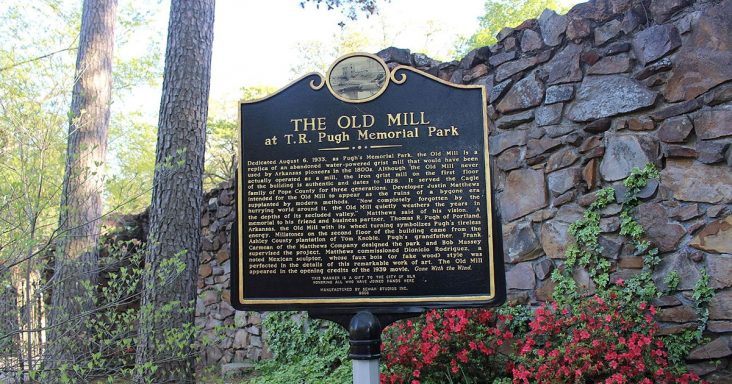Arkansas offers new historical marker program for communities
by December 19, 2017 9:22 am 1,281 views

Historical marker at T.R. Pugh Memorial Park in North Little Rock. Photo credit: Michael Rivera.
The Department of Arkansas Heritage is encouraging the placement of historical markers throughout the state by splitting the cost with community organizations on approved commemorative markers, said Stacy Hurst, director of the department.
The Arkansas Historical Marker Program is open to civic groups, including chambers of commerce, historical societies or individuals partnering with those organizations. To be considered for the program, proposed markers must commemorate a person, place or event with historical significance, dating back at least 50 years ago, according to the department.
“This initiative to help acknowledge and commemorate the people and places that have shaped Arkansas will be a tremendous way to help us remember who we are and where we’ve been,” Gov. Asa Hutchinson said in a press release. “I am proud of the Department of Arkansas Heritage for offering this to communities, and I look forward to seeing the markers go up as I travel around our great state.”
The heritage department will pay for half the cost of each approved marker, with the sponsoring organization agreeing to pay the other half.
Current cost is $1,850 for a one-sided marker or $1,950 for a two-sided marker, with a one-time maintenance fee of $200, according to the department.
Applications and final design of each marker text must be approved by a designated review committee, and the markers will be made by a vendor selected by the heritage department. Markers will be about 42 inches wide by 30 inches high, on a 7-foot post, according to the department.
“I am very pleased that we are able to partner with cities and towns in this way,” Hurst said in the release. “There are so many local stories that are a source of pride for residents and of great interest to the heritage tourist. My hope is that these signs will become a familiar sight around the state and they’ll help convey the compelling story of Arkansas.”
More information and applications are available on the Department of Heritage website.
